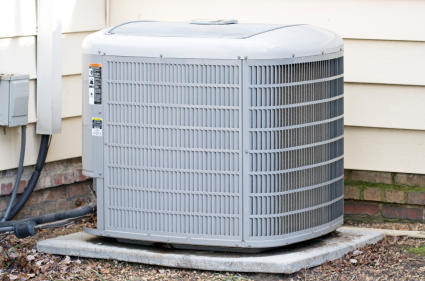The Pros and Cons of Heat Pumps

Are you tired of the ever-increasing energy bills associated with traditional heating and cooling systems? A heat pump might just be the answer to your problems. These innovative devices are becoming increasingly popular, and for good reason. They offer an energy-efficient and eco-friendly alternative to conventional HVAC systems. In this blog, we’ll explore the pros and cons of heat pumps to help you decide if they’re the right choice for your home.
Before we dive in, remember that making the right decision for your comfort needs is crucial. So, If you're unsure about whether a heat pump is suitable for your home, consult with a professional HVAC technician. They can assess your home's needs and provide guidance on the best system for you.
Want a free, customized heat pump installation quote?
Contact Comfort Systems and we’ll come to your home for a comprehensive heat pump estimate. We’ll review your home’s size, energy needs, and comfort preferences, then review the best options tailored to your target budget– including how applicable HVAC rebates can reduce your overall costs!
Pros
Energy Efficiency
Heat pumps are renowned for their remarkable energy efficiency. Unlike traditional furnaces and air conditioners, they don't generate heat by burning fuel or consuming a lot of electricity. Instead, they move heat from one place to another using a small amount of energy. This makes them an eco-friendly and cost-effective choice. The energy savings can be substantial, leading to lower utility bills and reducing your carbon footprint.
Dual-Functionality
One of the most significant advantages of heat pumps is their ability to provide both heating and cooling. In the winter, they extract heat from the outdoor air (even in cold climates) and transfer it indoors to warm your home. In the summer, they reverse the process, expelling heat from your home to keep it cool. This dual functionality eliminates the need for a separate air conditioning system, simplifying your home's climate control and saving you money in the long run.
Long Lifespan
Heat pumps are known for their durability. With proper maintenance, they can last up to 15-20 years, which is longer than many traditional heating systems. This longevity can save you money on replacement costs over time and reduce the environmental impact of HVAC equipment disposal.
Quiet Operation
Heat pumps are quieter than traditional heating and cooling systems. You won't have to endure the loud, clunky noises associated with furnaces and air conditioners. The quiet operation of heat pumps can lead to a more comfortable and peaceful living environment.
Consistent Temperature Control
Heat pumps provide consistent temperature control throughout your home. Traditional systems often result in hot and cold spots, but heat pumps distribute warmth or coolness evenly. This results in a more comfortable and consistent living space, making every room in your house enjoyable year-round.
Cons
Upfront Cost
The upfront cost of purchasing and installing a heat pump can be relatively high compared to traditional heating and cooling systems. However, it's essential to consider this as an investment that will pay off in the long run due to energy savings and other benefits.
Temperature Limitations
While heat pumps are highly efficient, their performance may decrease in extremely cold weather. Some models struggle to provide adequate heating in sub-zero temperatures. In such cases, you may need a backup heating source, like electric resistance heating, which can increase your energy costs.
Freezing Up
Heat pumps can occasionally experience freezing during cold weather conditions, especially in regions with low temperatures. When the outdoor unit's evaporator coil becomes covered in ice, the heat pump may enter defrost mode to address this issue. During defrost mode, the heat pump temporarily reverses its operation, diverting hot refrigerant to the outdoor coil to melt the ice.
While this process is essential for maintaining efficient heat pump performance, it can slightly reduce the system's overall efficiency and may lead to short-term cold air delivery into the living space.
Space and Installation Requirements
Installing a heat pump may require modifications to your home. You need a suitable location for the outdoor unit, and the installation process can be more complex than traditional systems. Additionally, heat pumps work best in homes with good insulation and effective sealing. If your home is poorly insulated or has significant air leaks, the heat pump will have to work harder to maintain a comfortable temperature, potentially reducing its efficiency and increasing energy consumption.
Electricity Costs
The cost of electricity in your area can significantly impact the economic viability of a heat pump system. In regions with high electricity prices, the savings provided by a heat pump might not be as substantial, making other heating options, such as gas furnaces, more attractive.
Schedule your free in-home estimate today.
Schedule your heat pump estimate today and we’ll provide educated answers to all your questions. We can even review our low-interest financing options to help make your new system more easily affordable. When your installation is finished, you can relax knowing we offer honest advice, upfront pricing, and strong labor protections, such as our 1-year No-Lemons guarantee plus a 100% satisfaction guarantee on all new heat pump installations.